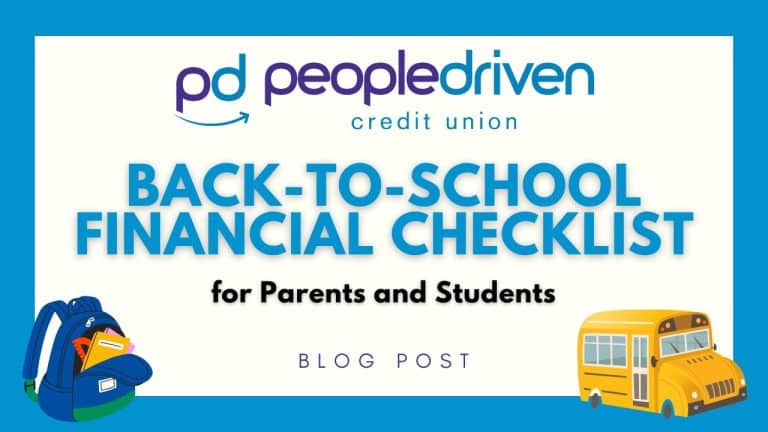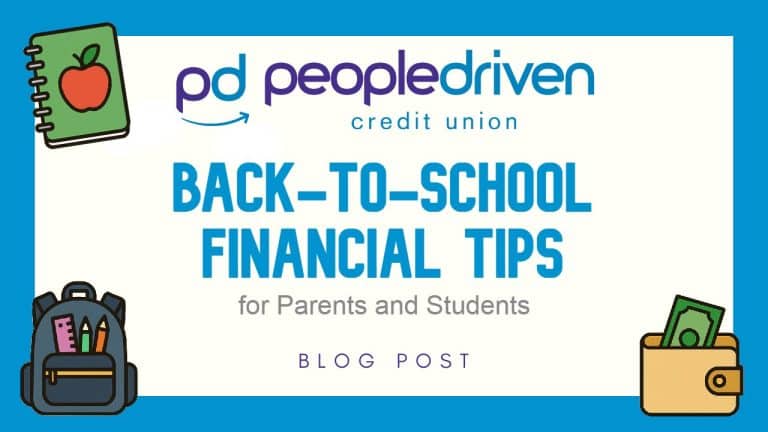
Financial Literacy: How to Teach Kids About Money
It’s never too early to build smart money habits.
It’s always a great time to start conversations about money with your kids. Teaching children about finances early on helps set them up for long-term success. At People Driven Credit Union, we believe that financial wellness starts at home, and we’re here to help you guide the next generation.
Why Financial Literacy Matters for Kids
Financial literacy isn’t just about dollars and cents—it’s about empowering kids to make confident, informed decisions about saving, spending, and planning for the future. Starting early builds lifelong habits that can lead to financial stability and success.
Children who learn about money management from a young age are more likely to:
- Save regularly
- Understand the value of money
- Avoid debt later in life
- Set financial goals and stick to them
Money Lessons by Age
Ages 3–7: The Basics
Start with simple concepts:
- Saving vs. Spending: Use a piggy bank or clear jars to show how money is saved and used.
- Needs vs. Wants: Talk about what things cost and why we choose one thing over another.
- Earning Money: Introduce the idea that money is earned by doing tasks or work.
Ages 8–12: Hands-On Practice
Give kids more responsibility:
- Allowances and Chores: Let them earn money and make choices about how to spend or save it.
- Setting Goals: Help them save for something they want, like a toy or game, and track their progress.
- Open a Youth Savings Account: It’s a safe and exciting way to introduce real banking.
Teens: Real-World Experience
Get them ready for adulthood:
- Budgeting: Teach them how to track spending and stick to a simple budget.
- Bank Accounts: Consider a joint account with a debit card to help them learn money management skills.
- Financial Tools: Discuss topics like credit, interest, and loans to prepare them for the future.
Make Learning Fun
You don’t need a formal curriculum to teach kids about money—look for teachable moments:
- Grocery shopping: Compare prices and stick to a list.
- Family game night: Play financial literacy games like Monopoly or The Game of Life.
- Online tools and apps: Use kid-friendly budgeting or allowance tracking apps.
People Driven Credit Union is Here to Help
We’re committed to helping your entire family grow financially strong—from first piggy banks to first homes. Ask us about our youth accounts, educational workshops, and financial counseling through our trusted partners at GreenPath Financial Wellness.
Final Thought
Invest time in your child’s future. By teaching your kids about money now, you’re giving them tools to succeed for a lifetime.
Want help getting started?
Visit one of our branches, contact us, or learn more online about youth accounts and financial education tools.





